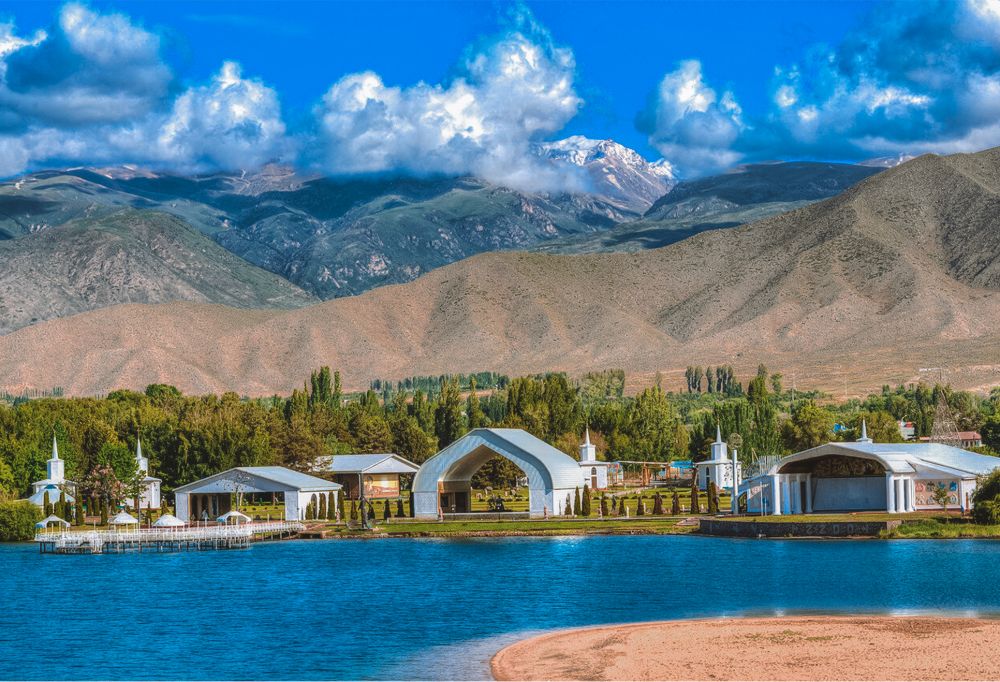

Nestled along the northern shores of the picturesque Issyk-Kul Lake, Cholpon Ata has long been a jewel in Kyrgyzstan's tourism landscape. The history of tourism in Cholpon Ata can be traced back to the early 20th century when the Soviet Union began to promote the region as a health and vacation retreat for its workers. The area's development was influenced significantly by its natural thermal springs, clean mountain air, and the therapeutic qualities of Issyk-Kul's saline waters, which attracted visitors seeking relaxation and wellness treatments.
During the Soviet era, Cholpon Ata became a prominent resort town. The government invested in infrastructure, building sanatoriums, hotels, and recreational facilities. Throughout the decades, it grew in popularity as a summer destination, not only for citizens of the Soviet Union but also for officials and dignitaries. Visitors came to enjoy the beaches, water sports, and hiking in the nearby Tian Shan mountains.
With the dissolution of the Soviet Union, Kyrgyzstan faced several challenges, and the tourism industry in Cholpon Ata suffered a temporary setback. However, in the early 2000s, the region began to experience a resurgence in tourism, this time attracting a more international audience. The Kyrgyz government, recognizing the area's potential, started to support tourism through various initiatives.
In recent years, there has been a deliberate shift towards cultural tourism, with an emphasis on showcasing Kyrgyz heritage and nomadic traditions. The World Nomad Games, initiated in 2014 and held in Cholpon Ata, have played a critical role in this revival. This international event has brought attention to traditional sports, arts, and the culture of the Kyrgyz people, making Cholpon Ata an important hub for cultural exchange and tourism.
Today, sustainable tourism is on the rise, with more travelers seeking authentic experiences that also contribute positively to the local environment and communities. Ecotourism initiatives, community-based tourism, and adventure travel are increasingly popular, with visitors engaging in trekking, horseback riding, and exploring the natural beauty of the region.
Luxury tourism is another avenue on the upswing in Cholpon Ata. High-end resorts and boutique hotels are emerging, catering to visitors looking for comfort and exclusivity while enjoying the picturesque landscapes and cultural richness of Kyrgyzstan.
Despite its potential and recent growth, the tourism industry in Cholpon Ata faces challenges such as the need for improved infrastructure, professional training for service providers, and environmental conservation efforts. Looking forward, it is essential for the further development of tourism in Cholpon Ata to consider these aspects to ensure that it remains a sustainable and thriving destination for generations to come.
Cholpon Ata has transitioned from a Soviet-era retreat to an international tourism destination, preserving its natural beauty and cultural heritage. With continued investment and sustainable practices, it promises to remain an attractive spot for tourists seeking a combination of relaxation, adventure, and cultural enrichment in the heart of Kyrgyzstan.